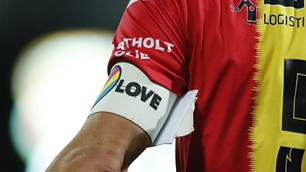The tidal wave of South American players that has engulfed European football has been illustrated by FIFA statistics showing 20% of all international transfers last year - some 2,300 - involved a Brazilian or Argentinian.
FIFA's Transfer Matching System which monitors international transfers recorded £1.89billion spent in 2011 - but that does not include domestic transfers such as Fernando Torres' £50million move from Liverpool to Chelsea.
Clubs paid agents £82million in total but again that sum does not include payments made by players to their agents, or for any domestic transfers.
Of the 11,500 international transfers in 2011, 1,500 were Brazilians and 800 of the players involved were from Argentina. Surprisingly, only 10% of all transfers were a permanent move from one club to another, as the vast majority of players signed by clubs were out of contract.
FIFA launched the TMS in 2010 and the unit's chiefs say the system limits - but does not eliminate - practices such as the third-party ownership of players by individuals rather than clubs, and clubs being used as vehicles for money-laundering.
Clubs have to tick a box in which they declare that the entire transfer compensation is paid to a club and not to anyone else.
Isabelle Solal, the TMS department's head of integrity and compliance, told reporters today: "It does reduce the risk of third party influence. It means we are able to limit the ability of third parties to exploit a lack of transparency in the market.
"The department does aim to ensure that the money is being paid from club to club and we do run investigations on that."
FIFA are investigating one South American agent Juan Figer, who was reported by Bloomberg to have traded players - including Porto's Brazilian forward Hulk - to European clubs via a Uruguayan team, Club Atletico Rentistas, for which they never appear.
FIFA said in a statement: "We can confirm that the FIFA disciplinary committee will look into one transfer related to player agent Juan Figer as we were informed about potential irregularities. At this stage, however, no official investigation is open and therefore, also the disciplinary consequences are speculative."
Mark Goddard, TMS's general manager, said the transfer of players in Brazil was now "an industry" but that the system allowed some regulation.
He added: "It is really quite a phenomenon - we have 400 clubs who have had training on using TMS.
"It has also certainly tightened up the movement of minors and the loose approach to transferring players outside of windows.
"That has created a different dynamic, no one was respecting the rules."
Goddard admitted that the system was not a "silver bullet" to solve all of the issues which surrounded transfers but did act as a permanent record of clubs' declarations surrounding the movement and signing of players.
Last year the TMS opened disciplinary procedures against 700 clubs over irregular transfers but their sanctions are limited to a 14,000 Swiss franc fine (equating to just under £10,000). Any serious infractions have to be sent to FIFA's disciplinary committee to be dealt with.
The TMS report states that more than half of all the players transferred last year earned less than 43,000 US dollars (£27,000) annually. The small number of extremely high salaries however means that the average salary was 244,000 US dollars (£153,000).
Related Articles

Morocco blazing a trail for Arab women's football participation

FIFA blasted for OneLove armband threat













